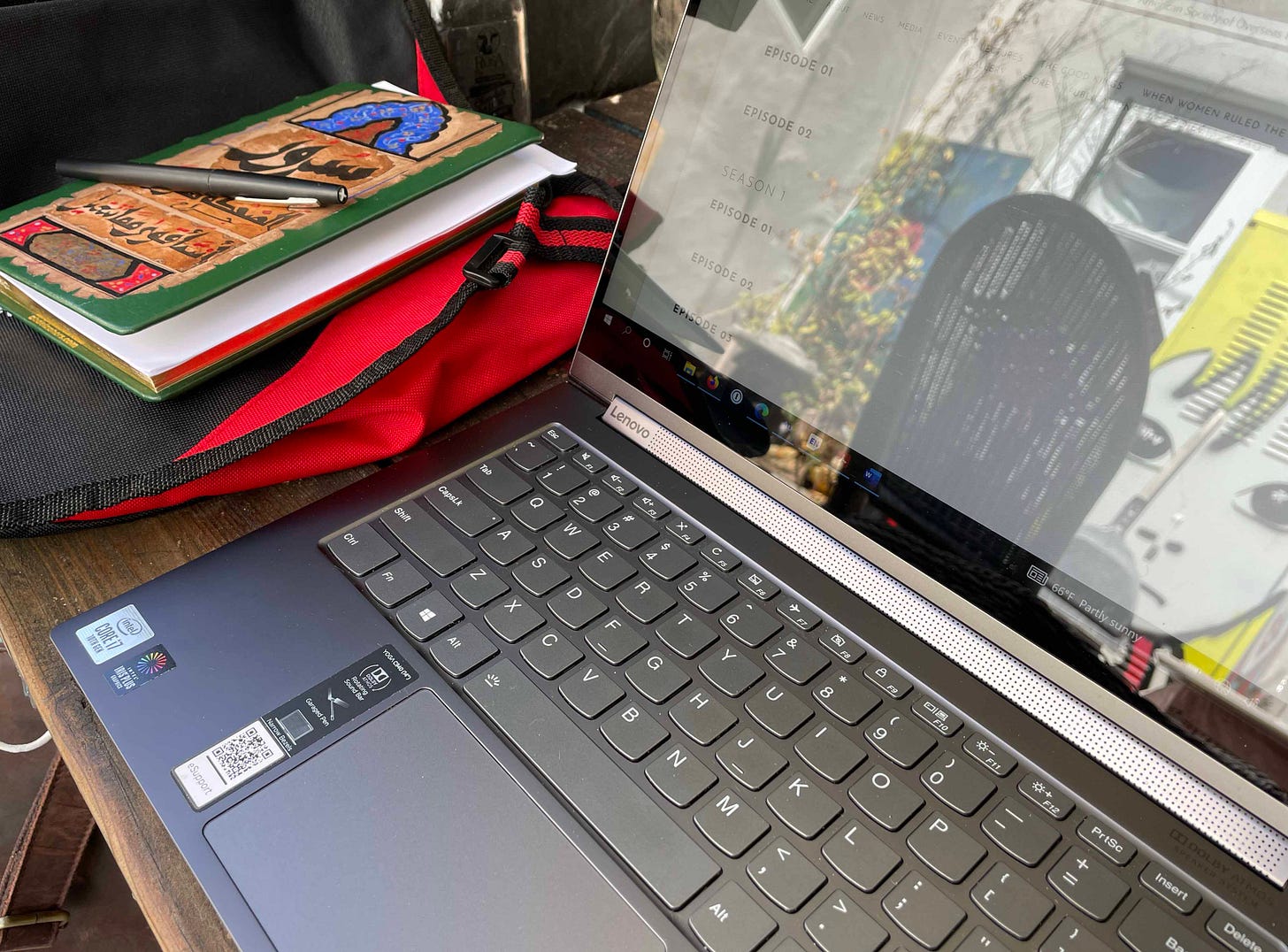As the year comes to a close and we get ready to enjoy a short hiatus for the winter break, we wanted to use our last post of the year to reflect on where we started with this Substack, where we’re going, and to express our gratitude to you, our readers. Thank you for subscribing to our posts and sharing them with interested readers. We’d like to offer a special thank you to readers who are supporting our content creation through paid subscriptions. It means we can actually pay Jordan and Amber for their hard work (because isn’t the imposition of free labor another zeitgeisty topic?). We are so thankful and appreciative of your support!
We began Afterlives After Party in March of this year with the idea of creating a reading companion to our podcast, Afterlives of Ancient Egypt, where we could share and continue the conversations we have on a myriad of contemporary topics from entertainment to politics and society and bring our—direct! anti-patriarchal!—ancient historical perspective to current history and archaeology related news. As human systems are increasingly perceived as overtly threatening and obviously unfair, we must look to the sources of those systems. Too long have we basked in our modern exceptionalism, as if we had pandemics and hunger beat. But our systems are a direct outgrowth of battle-weary and anxiety-ridden ancient humans. What is it like to have a life expectancy of under 50 years? What does it feel like to lose half your children before the age of 5? We suddenly need to know these things. Why? Because we feel we might be headed back to that place. And because for thousands of years, humans have tried to build walls against such vulnerabilities, only to create other unexpected problems. Many are recognizing that the past is very much alive now, that we are just people living in millennia-old, patriarchal systems. History isn’t repeating itself; history is now.
In line with a palpable ramp-up of human anxiety (right?!?), we also wanted to communicate in safer spaces, away from the popularity contests of social media and the concomitant trolls and sundry a-holes, where we can muse and reflect on how historians construct the past and why that past matters at all. On that score, you may want to check out our archives with posts on kinship and power, virtual museum exhibitions and archaeological reproductions, reflections on America’s historical landscape, and the role of historical fiction in inspiring young readers to pursue careers in history or archaeology. We will continue to create new content and develop our audience here, away from the pay-to-play, lose-your-soul socials, supporting platforms that provides content we value, like Substack and podcasts, a haven from the rage-inducing algorithms that reward outrage and the bottom-feeders of the internet.
As we looked back over the course of the year and how much our audience has grown, we can see the hunger for authentic, no-bullshit, no-ivory-tower content about the ancient world. While many readers came here via our podcast, many did not, and so we decided a title change was in order. You may have noticed recently that our “Weekly Round-up” posts became “Ancient/Now” posts. We hope that this new title gives new readers a more accurate, at-a-glance idea about why we’re writing at all, while simultaneously making it easier for the like-minded, ancient-history-curious to find us.
So, in January you’ll notice a few cosmetic changes related to the title change, but we’ll still be creating content that takes a seemingly apolitical ancient discovery and reveals how a dominant culture can hide its political impositions. We love giving you our authoritative and evidenced-based hot takes that would otherwise be watered-down beyond recognition in a formal news story. Thank you for being a part of our growing online community!






